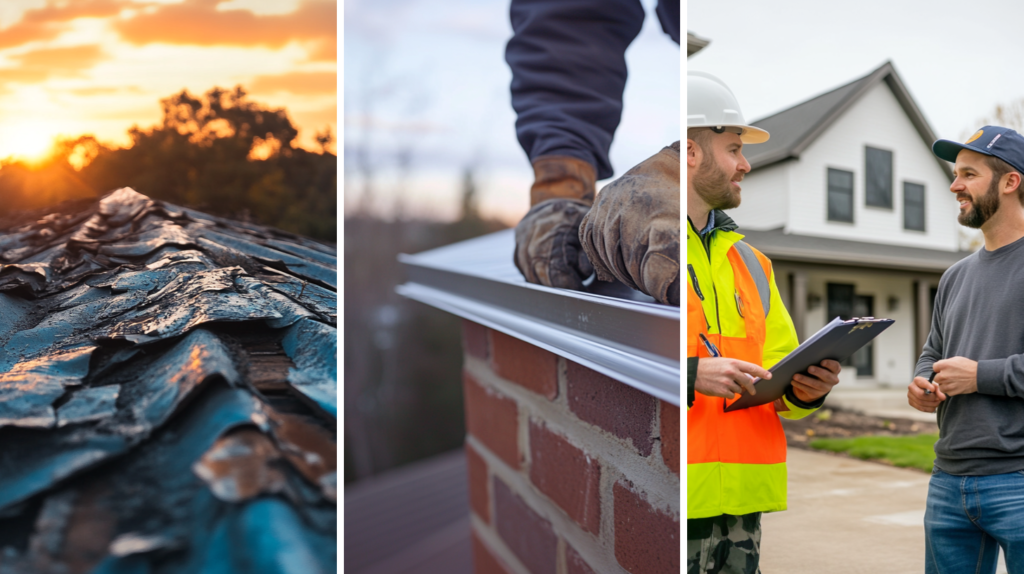
A roofing warranty is essential to the agreement between a roofing contractor and the homeowner. It provides the homeowner assurance and peace of mind regarding the quality, durability, and longevity of the roofing materials and workmanship. When considering a roofing warranty, several key elements should be carefully reviewed. A comprehensive roofing warranty typically covers coverage details, duration and terms, and the transferability of the warranty. By understanding and carefully reviewing these key elements, homeowners and building owners can ensure that they are making an informed decision and selecting a roofing warranty that best suits their needs. Coverage Details When signing a roofing contract, one key element to carefully consider is the type of coverage provided in the warranty. A warranty guarantees that the roofing materials and labor will be of satisfactory quality and that any defects or issues will be corrected within a specified timeframe. The coverage details of a warranty encompass various aspects. Firstly, it includes the materials used in the roofing installation or repair. The warranty ensures that the materials used are high quality and will not degrade prematurely, protecting homeowners from costly replacements. Additionally, the warranty covers the labor involved in the roofing project. This guarantees that the roofing contractor will rectify any installation mistakes made during the installation or repair process, ensuring the integrity and reliability of the roof. The warranty also outlines specific inclusions and exclusions. These may include coverage for damage caused by natural disasters, leaks, or other roof-related issues. However, it is important to note that there may be exclusions for damage caused by improper maintenance or unauthorized repairs. Understanding the type of coverage and the coverage details of a roofing contract's warranty is crucial for homeowners and building owners. It ensures that they are protected from faulty materials or poor workmanship, providing peace of mind and saving them from significant expenses in the future. Duration and Terms One of the key elements in a roofing contract is the duration and terms of the project. When entering into a roofing contract, it is important to understand the duration of the project and the associated terms, including the cost of labor and the coverage term of any warranties. The duration of a roofing project can vary depending on its size and complexity. The homeowner or building owner must be aware of the estimated timeline provided in the contract. This ensures they clearly understand how long the project is expected to take and can plan accordingly. In addition to the duration, the terms included in a roofing contract outline the responsibilities and obligations of both the contractor and the client. These terms may cover payment schedules, material specifications, and warranty information. Understanding the labor cost and how it is factored into the overall project cost is also an important consideration. This transparency helps homeowners and building owners manage their budgets effectively. Furthermore, the coverage term of any warranties should be clearly defined in the contract. This includes details on what is covered, for how long, and under what conditions. By understanding the terms of a roofing contract, including the coverage term and the cost of labor, both parties can help prevent misunderstandings or disputes during the project. This clarity ensures homeowners and building owners can feel confident that their project will be completed according to their agreed-upon expectations. Transferability Transferability is one of the key elements to consider when reviewing a roofing contract. Inquire about the transferability of the service contract in the event of selling your home, as this is crucial information to understand. It is important to ask the contractor for clarification instead of assuming automatic transfer. Not all warranties are transferable, and each contractor may have different policies. By asking for clarification, you will clearly understand whether the warranty can be transferred to a new homeowner or if it becomes void once the property changes hands. Knowing how to transfer a warranty can significantly impact the value of your property. A transferable warranty adds value and peace of mind to potential buyers. They know they won't have to worry about roofing issues after purchasing the property. Additionally, a transferable warranty can serve as a selling point, making your property more attractive than others on the market. Remember to inquire about transferability when discussing the warranty part of a roofing contract. By seeking clarity on this important aspect, you can ensure that you fully understand the warranty terms and can make an informed decision regarding your roofing needs. Learn more about warranty and the roofing services we offer: skyroofingconstructiontx.com/warranty/ https://flic.kr/p/2q758Qe

No comments:
Post a Comment